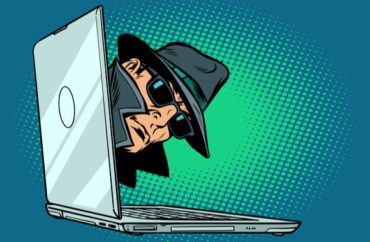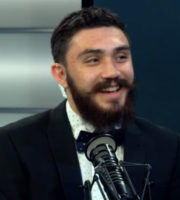
Like employers spying on unions
When a federal appeals court upheld a First Amendment lawsuit against the University of Michigan’s bias response team, it not only prodded the university to shutter the team permanently.
It gave legal ammunition to the nonprofit membership association also suing the University of Illinois for its two bias response systems.
Speech First filed an appeal to the 7th U.S. Circuit Court of Appeals after U.S. District Judge Colin Bruce shot down its request for a preliminary injunction against UI in September.
Its argument hinges on the 6th Circuit ordering a lower court to reconsider a preliminary injunction against UMich. Less than a week earlier, Bruce had relied in part on that other lower court’s ruling in favor of UMich, even as he noted the appeal was pending at the 6th Circuit.
The judge erred when he found that UI’s decision to change the challenged policies – after it was sued – rendered the lawsuit moot, Speech First argues.
Without an injunction, nothing stops the university from reinstating the speech-chilling policies in the future, and its bias response team continues to threaten the speech of students possessing conservative, libertarian, or “classical liberal” beliefs, Speech First wrote.
It’s asking the 7th Circuit to directly rule on the motion for preliminary injunction against UI, instead of remanding the case to Bruce. Speech First argues it has a “powerful interest in ensuring the protection of open and vigorous discourse” at the university without “prior restraints or threats of investigation or punishment” by UI.
Speech First says the “balance of harms” favors preliminary injunction, and that UI is “free to enact new regulations” in line with “First Amendment jurisprudence” even if Speech First wins.
Multiple organizations have filed friend-of-the-court briefs in support of Speech First’s appeal and against campus bias response teams at public universities.
The Wisconsin Institute for Law and Liberty, for example, compares UI’s bias response team to employers spying on unions.
Courts have ruled that what mattered in these cases wasn’t the employer’s actual authority to retaliate, but rather “the power that surveillance has, on its own, to intimidate and inhibit protected speech,” the group wrote.
Wisconsin Institute for Law & Liberty amicus brief in Speech First case by The College Fix on Scribd
Judge takes university’s words it won’t resurrect problematic policies
Speech First filed suit against UI in May for four policies that allegedly chill student speech.
The policies included “bias-motivated” investigations by the bias response team and university housing officials, a “no-contact directive,” and a requirement for students to receive prior approval to put up flyers related to non-campus elections.
Using the same strategy it used against the University of Michigan – and unsuccessfully so far against the University of Texas – Speech First claims to represent four anonymous students at UI who are suffering “concrete injuries” to their First and Fourteenth Amendment rights.
Judge Bruce put the brakes on the suit Sept. 17. He heavily cited 7th Circuit case law, claiming that governmental entities are shielded if they take steps to amend infringing policies.
MORE: At U. Illinois, 265 bias complaints enforced by literal ‘speech police’
There’s no reason to believe that UI would reinstate its flyer policy and no-contact directive, policies it had amended just days before responding to Speech First’s lawsuit, the judge claimed.
Bruce also agreed with his Texas colleague, U.S. District Judge Lee Yeakel, that Speech First failed to properly establish standing to sue the University of Texas with its strategy of representing anonymous members at the targeted school.
Speech First “failed to demonstrate an injury-in-fact,” Bruce wrote, as he couldn’t determine “whether the [anonymous] Students have an intention to engage in speech that would result in any actual interactions” with the Bias Assessment Response Team or investigation under University Housing’s “bias incident protocol.”
No need to enforce illegal rules when students are afraid to violate them
Speech First’s appeal explains how other universities have faced blowback and resistance for having “campus climate” or “bias response teams.”
The University of Iowa, for example, “scrapped its plans to create a bias response team,” citing a “high failure rate” at other schools and their “tendency to become almost punitive.” (It has a “Campus Inclusion Team” with no power to investigate.)
The appeal notes that the definition of “bias-motivated incident” at UI “encompasses speech that is fully protected under the First Amendment,” chilling speech by creating a fear of punishment for students engaging in protected speech.
Prior to to Speech First’s lawsuit, UI’s student code prohibited students from “post[ing] and distribut[ing] leaflets, handbills, and any other types of materials” about candidates in non-campus elections without “prior approval.” It threatened discipline including “reprimand, censure, probation, suspension, and dismissal from the University.”
MORE: UMich permanently shutters bias team to settle suit
Speech First questions the timing of UI’s decision to remove the policy, “just four days before it filed its opposition” to the motion for preliminary injunction. “Because the change is not binding on current or future University officials, the University is free to reimpose the prior-approval requirement at any time.”
It says Bruce wrongly accepted UI’s “only evidence on the rule’s history of enforcement,” which was “the declaration from one University official who stated that she had ‘never seen or heard’ of this happening.”
Given the possible punishments that could result, Speech First says it would not be “entirely surprising” for UI to have never enforced the policy because “most students do not openly violate the University’s rules.”
Judge Bruce’s defense of UI’s bias response team based on the UMich litigation is also outdated, according to the appeal, given that UMich agreed to shutter its team permanently to settle with Speech First.
Speech First asks 7th Circuit to halt University of Illinois bias reporting system by The College Fix on Scribd
Would the court approve of a ‘Patriotism Assessment Response Team’?
UI’s bare “promises that it respects the free-speech rights of its students” are not enough to meet the requirements of the First Amendment, which “demands far more scrutiny,” Speech First says.
The same goes for the no-contact directive, which gives the university “blanket authority to issue” an order whenever an official believes it is “warranted,” regardless of protected speech.
Speech First claims that as UI changed the flyer policy only to avoid getting sued, it has since raised the university’s burden to prove “that the change was genuine.” The current revision “is not binding on current or future University officials,” and reinstating the old policy “requires nothing more than a recommendation from a University committee and approval by the Chancellor.”
Bruce wrongly declined to issue a preliminary injunction based on a misreading of the situation, which the judge claimed was missing a “credible threat of enforcement,” the appeal argues at length.
Its UI student members satisfy this First Amendment test: They “reasonably fear the consequences” of engaging in speech that is “deemed biased.” That includes everything from the Bias Assessment Response Team reaching out to seek “voluntary” dialogue and “corrective actions,” to the referral of the incident to the Office for Student Conflict Resolution or police, to BART publicizing the “details about the allegations” on its website.
MORE: 6th Circuit says UMich bias team imposes ‘objective chill’
Imagine if a university had created a “Patriotism Assessment Response Team” after the Sept. 11 terrorist attacks, Speech First asked the 7th Circuit. Students who witnessed “anti-American incidents” on campus could report them to this hypothetical team and “receive counseling and support about how to cope with unpatriotic actions.”
The 7th Circuit surely would not allow such an entity to exist under the First Amendment, which is why the existing bias response systems should be disbanded, Speech First says.
There is no need for the lower court to conduct a “fresh examination” of the issue under the 7th Circuit’s own First Amendment precedents, it argues, asking for a final decision from the appeals court.
It’s a slam dunk: Speech First has demonstrated a “likelihood of success on the merits,” and the deprivation of First Amendment freedoms “for even minimal periods of time” constitutes “irreparable injury.” It is “always in the public interest” to issue injunctions protecting First Amendment rights.
Bias teams ‘raise the social cost of expressing certain viewpoints’
The Independent Women’s Law Center and American Council of Trustees and Alumni submitted a joint friend-of-the-court brief. It cites a study from the Foundation for Individual Rights in Education that supports Speech First’s claim that students’ free speech is threatened by bias response teams.
According to the study, in 2016 there were at least “231 publicly disclosed bias response teams at four-year and post-graduate institutions—143 of which were at public institutions such as the University of Illinois.” It estimated that “at least 2.84 million American students” attend schools with “often-anonymous reporting systems monitored by administrators and police officers.”
The brief claims that in “condemning insensitive speech,” bias teams “raise the social cost of expressing certain viewpoints,” which in turn chills protected speech.
Colleges are already overrun with students who attempt to silence speakers invited by their peers, citing “high profile disruptions” of visits by authors Heather Mac Donald and Charles Murray.
Critical students have also “resorted to vandalism to squelch the speech of faculty members.” The brief claims that this behavior “reveals a startling culture of censorship that impedes free and open discussion on American college campuses.”
Independent Women’s Law Center and American Council of Trustees and Alumni amicus brief in Speech First cas… by The College Fix on Scribd
MORE: Legal groups demand reinstatement of UT speech-code suit
IMAGE: rogistok/Shutterstock
Like The College Fix on Facebook / Follow us on Twitter






Please join the conversation about our stories on Facebook, Twitter, Instagram, Reddit, MeWe, Rumble, Gab, Minds and Gettr.